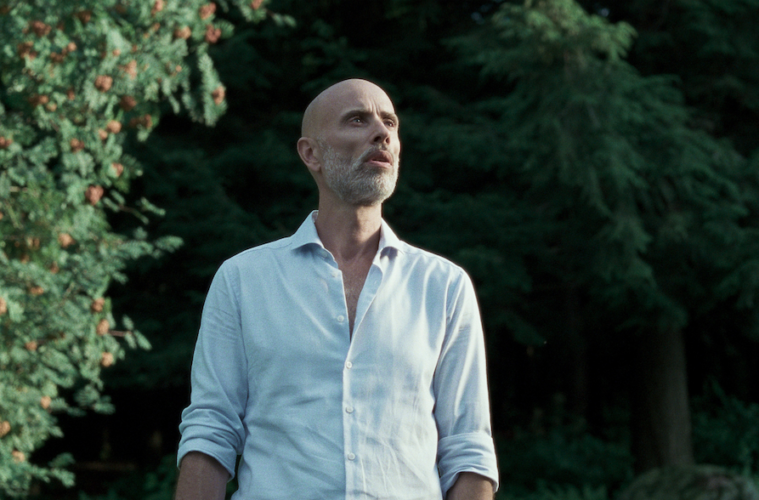Following in the footsteps of literature, cinema has cultivated a long and rich – and some would say tired – tradition of targeting the bourgeoisie and its manifold ills. Quebecois critic-turned-director and international festival fixture Denis Côté, whose previous films centered on working-class types and petty criminals, makes a contribution to the lot with Boris Without Beatrice, his ninth feature. To his own disservice, he’s made a film conspicuously similar to Pier Paolo Pasolini’s Teorema, one of the absolute finest specimen of cinematic bourgeois evisceration and one against which Côté’s film, perhaps inevitably, measures rather poorly.
Instead of a whole family, Boris Without Beatrice focuses on a single protagonist: Boris Malinovsky (James Hyndman), an extremely wealthy factory owner whose wife, Beatrice (Simone Élise-Gerard), suffers from melancholia so acute that she’s near catatonic. And in lieu of Terrence Stamp’s blue-eyed sex angel, Côté’s recruited the far-from-ethereal Denis Lavant to play an impish figure dressed in a rhinestone-bedecked kurta who mysteriously appears to inform Boris that he’s at fault for his wife’s condition, precipitating an earth-shattering identity crisis.

This inversion is not without appeal and Lavant almost steals the film in a mere two scenes. Hyndman is also excellent as Boris, though, especially in his pre-crisis state. Tall, athletic, and impeccably dressed, he struts around like a man who owns the world, spouting vitriol and generally representing the epitome of the affluent, arrogant asshole. His contemptible character is wonderfully illustrated in a series of exquisite early scenes that see him tear into a bubbly teenage store clerk for asking him too many questions, not even attempting to feign concern at the news that one of his workers has fallen into a coma, and commandeer a town-hall meeting, demanding the mayor attend to tarmacking the road that leads to his country mansion ahead of anyone else’s concerns.
The Teorema comparison is strengthened through the film’s mathematical construction. Once the variables have been laid out and Boris is put to the test, given the task of curing his wife’s illness, every one of his actions produces a reaction, with Beatrice acting like a human picture of Dorian Gray: when Boris starts sleeping with Beatrice’s carer, her condition worsens; when he makes a conciliatory gesture towards his estranged daughter, Beatrice’s condition improves.

The narrative runs through these steps in a mechanic fashion, and their execution isn’t particularly evocative or revelatory. Much like the film’s clinical cinematography, which is dominated by consistently striking yet lifeless tableaux, Côté’s theorem is closed in on itself, failing to produce interesting results. In fact, the film’s bourgeois critique ultimately develops into an endorsement of very bourgeois values. It turns out that all Boris needs to do in order to become a better person and save his wife is respect the institutions of marriage and the family. As soon as he’s ended two extra-marital affairs (with absolutely no regard for the women’s feelings) and made amends with his daughter and mother, Beatrice makes a full recovery, and Boris is welcome to enjoy his status and privilege with a clear conscience and no repercussions. All’s well that ends well.
Boris Without Beatrice premiered at the 2016 Berlin International Film Festival and opens on September 8.

